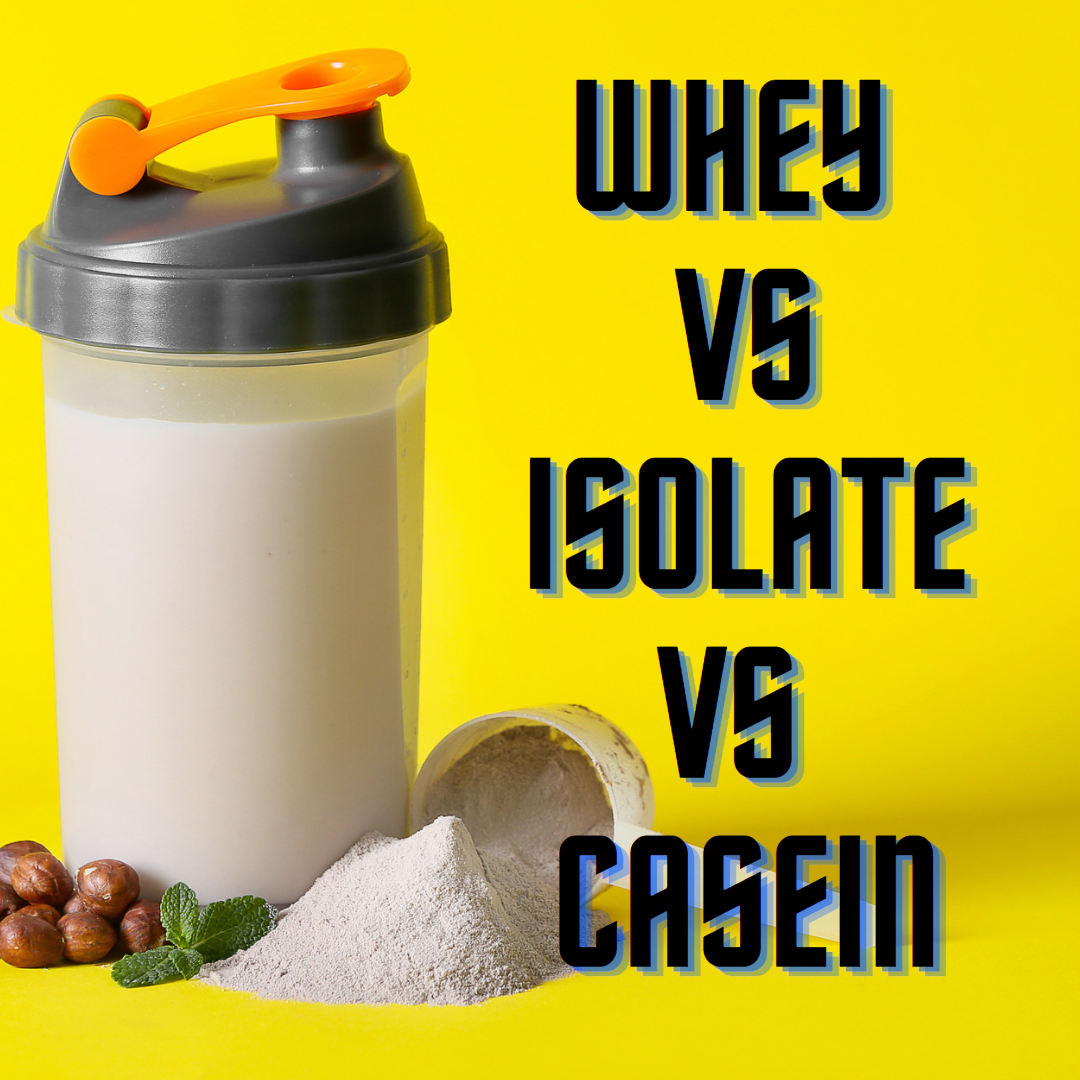Whey vs Isolate vs Casein- The Ultimate Protein Showdown

When it comes to protein supplements, the choices can be overwhelming. Three popular options that often come up in discussions are whey, isolate, and casein. Each of these protein types has its unique characteristics and benefits. In this article, we’ll dive deep into the differences between whey, isolate, and casein proteins, exploring their properties, benefits, and best use cases. So, if you’ve ever wondered which protein is the right choice for you, keep reading to find out!
Whey vs Isolate vs Casein: What Sets Them Apart?
To understand the differences between whey, isolate, and casein proteins, it’s crucial to know where they come from and how they are processed.
Whey Protein: The Fast-Acting Powerhouse
Whey protein is derived from milk during the cheese-making process. It is a complete protein, meaning it contains all the essential amino acids your body needs. The processing method for whey protein involves separating it from the other components of milk, such as lactose and fat. As a result, whey protein is quickly digested and absorbed by the body, making it an excellent choice for post-workout recovery.

Isolate Protein: The Pinnacle of Purity
Isolate protein is a highly refined form of whey protein. The process of isolating involves further filtering and purifying the whey to remove most of the lactose, fat, and other non-protein components. As a result, isolate protein has an even higher protein concentration than regular whey. It is an ideal choice for individuals who are lactose intolerant or following a low-carb or low-fat diet.

Casein Protein: The Slow and Steady Sustainer
Casein protein is also derived from milk, but its processing method differs from whey protein. While whey is rapidly absorbed, casein forms a gel-like substance in the stomach, leading to slower digestion and sustained release of amino acids. This slow release makes casein an excellent choice for providing a constant supply of amino acids over an extended period, such as before bedtime or between meals.
Whey vs Isolate vs Casein: The Nutritional Comparison
Let’s take a closer look at the nutritional profiles of Whey vs Isolate vs Casein proteins to better understand their unique qualities.
| Whey Protein | Isolate Protein | Casein Protein | |
|---|---|---|---|
| Protein Content | Typically around 80% | Over 90% | About 90% |
| Carbohydrates | Varies depending on processing | Minimal | Minimal |
| Fat Content | Varies depending on the processing | Minimal | Minimal |
| Digestion Speed | Rapid | Rapid | Slow |
| Amino Acid Profile | Contains all essential amino acids | Contains all essential amino acids | Contains all essential amino acids |
| Lactose Content | Contains lactose (varies depending on processing) | Minimal to no lactose | Contains lactose |
As seen in the comparison table, each protein type has its unique nutritional profile. While all three contain all the essential amino acids, their concentrations, and digestion speeds differ significantly. These variations make them suitable for different purposes and individual needs.
Also, read 👉 Whey Protein vs. Casein Protein: The Big Question?
FAQ About Whey vs Isolate Vs Casein
Conclusion
In the battle of whey vs isolate vs casein proteins, there is no one-size-fits-all answer. Each protein type offers unique benefits that cater to different goals and dietary needs. Whey protein is known for its rapid digestion and is often used for post-workout recovery. Isolate protein, with its high purity and minimal lactose content, is suitable for those with lactose intolerance or specific dietary requirements. Casein protein, on the other hand, provides a slow and sustained release of amino acids, making it ideal for prolonged periods without food, such as overnight.
When choosing whey vs isolate vs casein protein supplement, consider your goals, preferences, and any specific dietary requirements you may have. Experimenting with different protein types and finding what works best for your body can help you optimize your fitness journey and overall well-being.
- Where to Find the Best Plum Cake in Bangalore for Christmas & New Year - November 23, 2025
- Water Intake Calculator: Everything You Need to Know - September 7, 2024
- 5 Weight Gain Drink Recipes for Healthy Bulking - March 29, 2024










